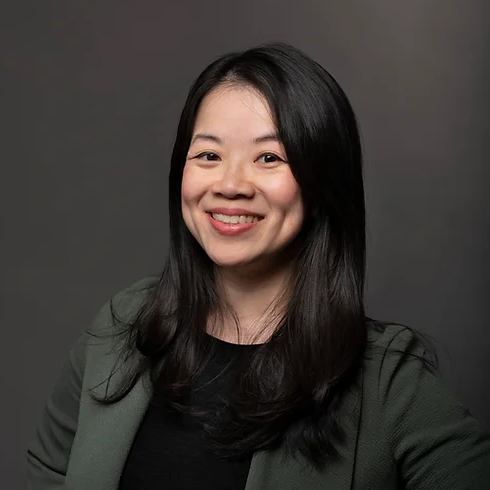Participatory research by Dr. Rose Yeung gives people living with Type 1 diabetes a voice to reshape their care
23 November 2023

By Gillian Rutherford, Folio
Kathleen Gibson figures it has cost her about $600,000 to take care of her Type 1 diabetes since she was first diagnosed 29 years ago.
Some of that expense has been covered by her workplace insurance but much of it has been out of pocket. For example, when she finished her nutrition degree she had $40,000 in student debt, $10,000 of it to pay for her insulin pump and supplies.
“Life with diabetes is hard,” says Gibson. “The full burden is not understood because it’s hard for others to fathom.”
That’s why Gibson has volunteered for the past four years as a patient partner on the research team behind the Reshape T1D study at the University of Alberta.
The researchers interviewed 41 adult Albertans living with Type 1 diabetes about the hidden costs of their illness to their mental, physical and financial health, with the goal of recommending changes to clinical practice and improving care.
“I deal with my diabetes 24/7, 365 days a year, and I see my health-care provider for, let’s say, four hours a year in total,” explains Gibson. “How can they possibly understand what my day-to-day existence is in four hours?”
Listening to the experts
The research team, made up of four patient partners, four diabetes clinician partners and two academics, is analyzing their qualitative data and plans to publish full results next year.
In the meantime, their preliminary findings are posted on the study website. Aside from the high financial costs, patients reported a lack of co-ordinated care and a gap in mental health support. They also felt that their diagnosis limits their education, career and family planning choices, and that both virtual care and peer support can help...
...“We as health-care providers have a lot of responsibility and a lot of influence,” says principal investigator Rose Yeung, an endocrinologist and associate professor in the Faculty of Medicine & Dentistry. “We need to empower patients to understand the reality of their disease so they can manage and cope better, rather than taking their hope away or telling them that they can’t do things that they dream of doing.”